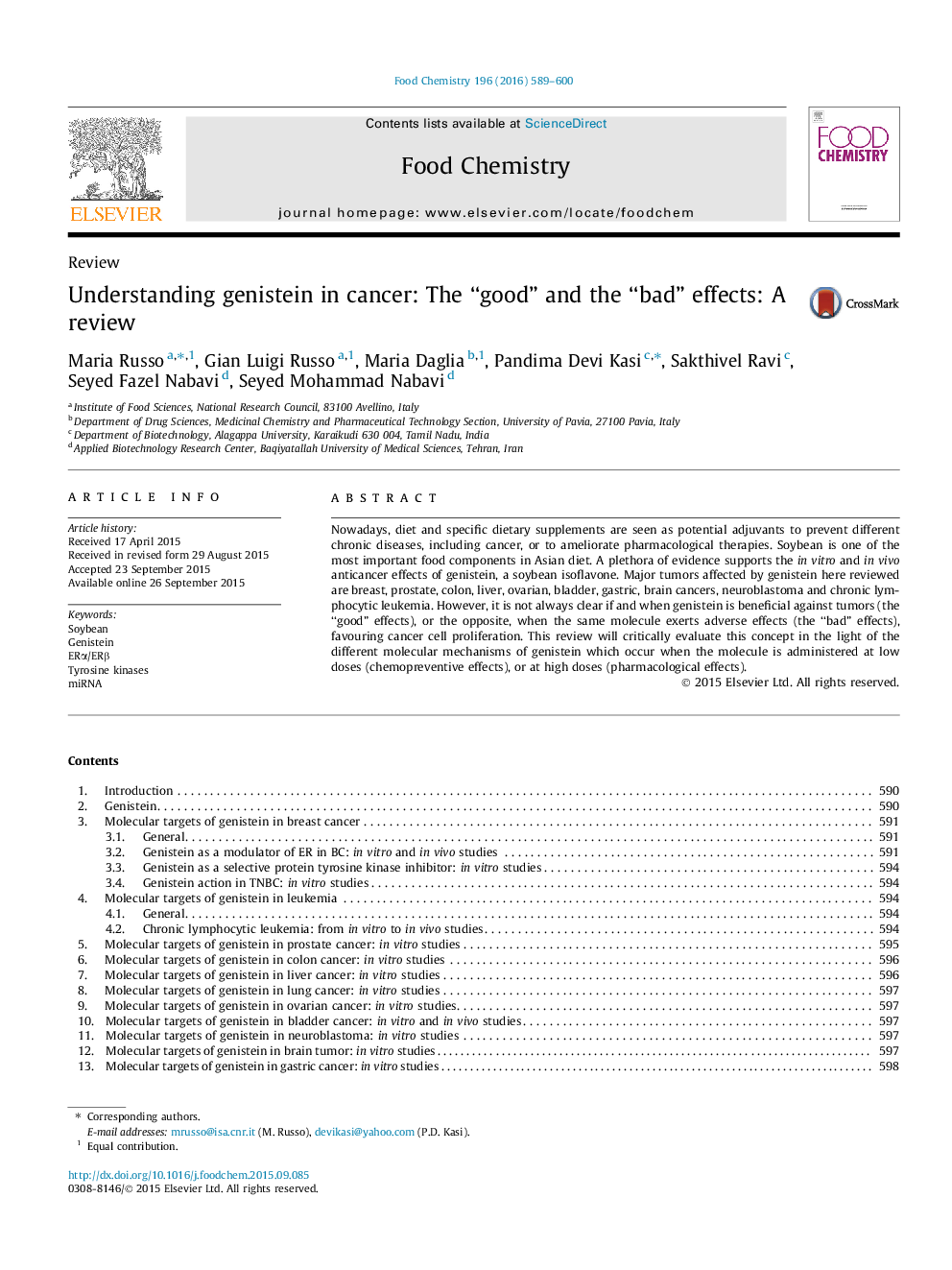| Article ID | Journal | Published Year | Pages | File Type |
|---|---|---|---|---|
| 1184123 | Food Chemistry | 2016 | 12 Pages |
•Genistein biological activities strongly differ in relation to doses applied.•Genistein targets primarily estrogen receptors and tyrosine kinases.•Potential therapeutic effects of genistein may depend upon the pleiotropic nature of the molecule.
Nowadays, diet and specific dietary supplements are seen as potential adjuvants to prevent different chronic diseases, including cancer, or to ameliorate pharmacological therapies. Soybean is one of the most important food components in Asian diet. A plethora of evidence supports the in vitro and in vivo anticancer effects of genistein, a soybean isoflavone. Major tumors affected by genistein here reviewed are breast, prostate, colon, liver, ovarian, bladder, gastric, brain cancers, neuroblastoma and chronic lymphocytic leukemia. However, it is not always clear if and when genistein is beneficial against tumors (the “good” effects), or the opposite, when the same molecule exerts adverse effects (the “bad” effects), favouring cancer cell proliferation. This review will critically evaluate this concept in the light of the different molecular mechanisms of genistein which occur when the molecule is administered at low doses (chemopreventive effects), or at high doses (pharmacological effects).
